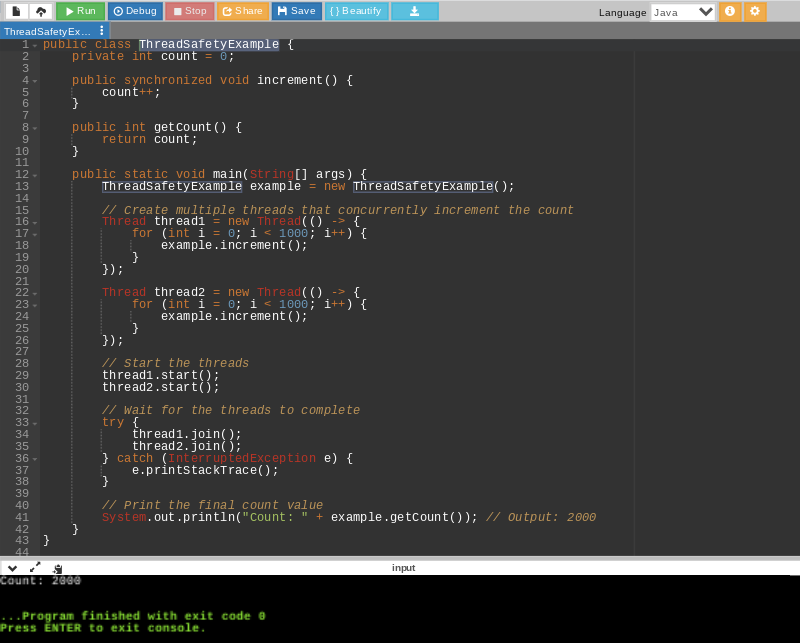Why Are Strings Immutable in Java? Necessary Expertise for Developers
Wiki Article
What Is Immutable Strings and Exactly How It Functions
In the world of shows, comprehending the concept of unalterable strings is paramount for developing safe and robust applications. Immutable strings refer to strings that can not be modified after they are produced, guaranteeing data stability and predictability within the code.The Basics of Immutable Strings
Unalterable strings, as an essential concept in programming, are personality series that can not be transformed once they are created. This indicates that once a string is appointed a worth, that value can not be changed. In languages like Python and Java, strings are immutable objects, bring about numerous ramifications in regards to memory monitoring and information integrity.Among the vital advantages of immutable strings is that they give a complacency in information manipulation. Since the content of an unalterable string can not be modified, it guarantees that the initial data continues to be intact, decreasing the threat of unplanned modifications during program execution (Why are strings immutable in Java?). This property additionally streamlines debugging processes, as developers can trust that once a string is specified, its value will certainly not be accidentally altered
Additionally, unalterable strings help with effective memory use. When a new string is produced based upon an existing one, as opposed to changing the original string, the new worth is stored individually. This method enhances performance by lowering memory fragmentation and simplifying memory appropriation procedures. In general, comprehending the essentials of immutable strings is vital for understanding shows concepts and optimizing code effectiveness.
Benefits of Unalterable Strings
Structure upon the security and performance benefits of unalterable strings, their benefits reach improving code dependability and simplifying concurrent programs tasks. By being immutable, strings can not be customized after creation, which gets rid of the threat of unplanned changes in the information they keep. This inherent immutability ensures that once a string is developed, its value continues to be constant throughout the program's implementation, lowering the possibilities of bugs triggered by unanticipated changes.Furthermore, immutable strings add to code dependability by making it easier to reason about the state of a program. Given that strings can not be altered, programmers can trust that a string will certainly constantly hold the exact same value, simplifying debugging and maintenance initiatives. This predictability brings about extra dependable and secure codebases.

Execution in Shows Languages
Within numerous programs languages, the unification of unalterable strings is a fundamental element that affects just how data is dealt with and adjusted within code structures. The execution of immutable strings varies across various shows languages, with each language offering its own systems to support this idea.

In contrast, languages like C and C++ do not have integrated assistance for unalterable strings. Programmers in these languages must by hand execute immutability by enforcing policies within their code to avoid straight adjustments to string items.
Best Practices for Collaborating With Immutable Strings
When dealing with unalterable strings in programming languages like Java and Python, sticking to finest methods makes sure reliable and secure data adjustment. Among the key best techniques is to make use of StringBuilder or StringBuffer as opposed to straight manipulating strings, specifically when handling substantial concatenation procedures. These courses offer mutable alternatives for string control, assisting to stay clear of unneeded memory allowances and improving performance.An additional ideal practice is to use string interpolation or formatting works given by the language rather than hands-on concatenation. This not just boosts readability however additionally help in protecting against common challenges such as unintended string modifications. Additionally, when collaborating with sensitive data such as passwords or API tricks, it is vital to avoid storing them as plain message in unalterable strings. Using secure storage space mechanisms like char varieties or specialized libraries for handling delicate details helps alleviate safety risks related to immutable strings.
Real-world Applications and Instances
Exploring practical implementations of unalterable strings in different sectors exposes their significant influence on information integrity and system dependability. In the healthcare industry, immutable strings play a vital role in making certain the security and confidentiality of individual information. By avoiding unauthorized adjustments to sensitive information such as medical documents and prescriptions, unalterable strings aid maintain conformity with rigorous personal privacy guidelines like HIPAA.Monetary institutions likewise take advantage of the unalterable nature of strings to enhance the security of customer data and transaction documents. Immutable review strings help avoid fraud and unauthorized modifications to economic info, giving a robust protection versus cyber dangers and guaranteeing the trust and self-confidence of customers.

Final Thought
Finally, unalterable strings are dealt with and stable sequences of personalities that provide advantages such as string security and enhanced performance in programs. They are applied in different programming languages to ensure information stability and security. Ideal methods for collaborating with immutable strings include preventing straight alterations and using methods that return brand-new string objects. Real-world applications of unalterable my company strings include data file encryption, caching, and string control tasks.Immutable strings refer to strings that can not be changed after they are produced, making certain information honesty and predictability within the code. When a new string is produced based on an existing one, instead than customizing the initial string, the brand-new worth is stored independently.In languages like Java official statement and Python, strings are unalterable by default, suggesting that as soon as a string object is produced, its worth can not be changed - Why are strings immutable in Java?. Ideal techniques for functioning with immutable strings include staying clear of direct adjustments and using approaches that return brand-new string things. Real-world applications of unalterable strings consist of data encryption, caching, and string manipulation tasks
Report this wiki page